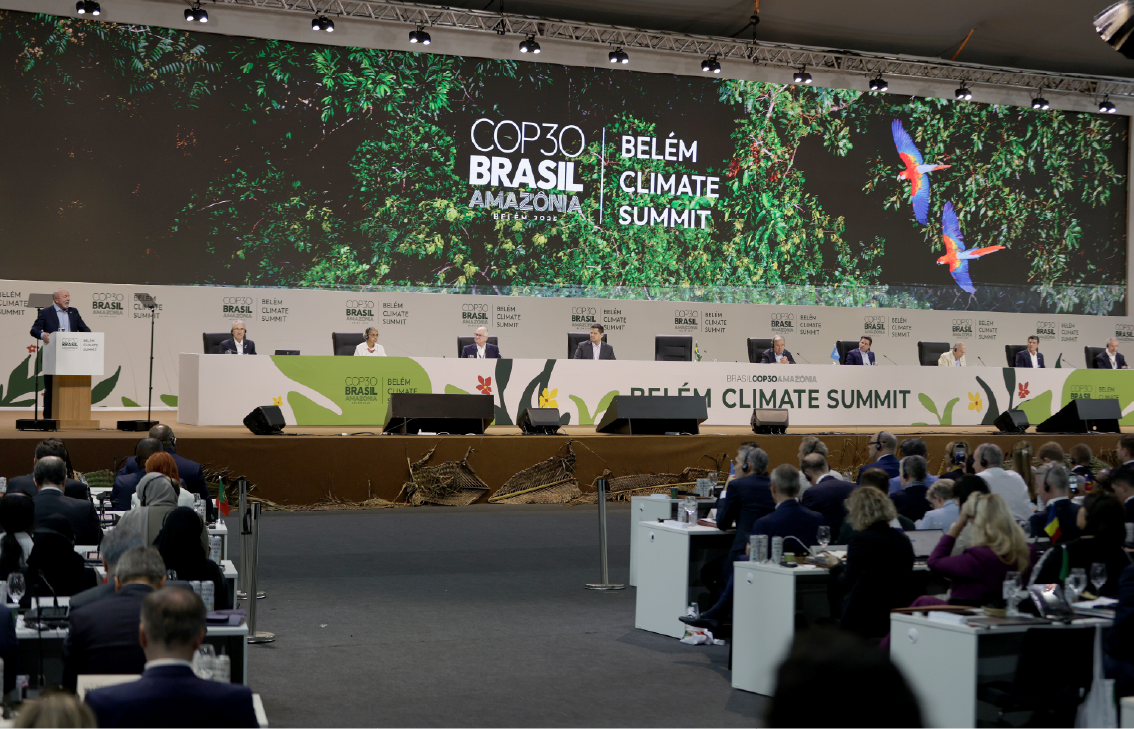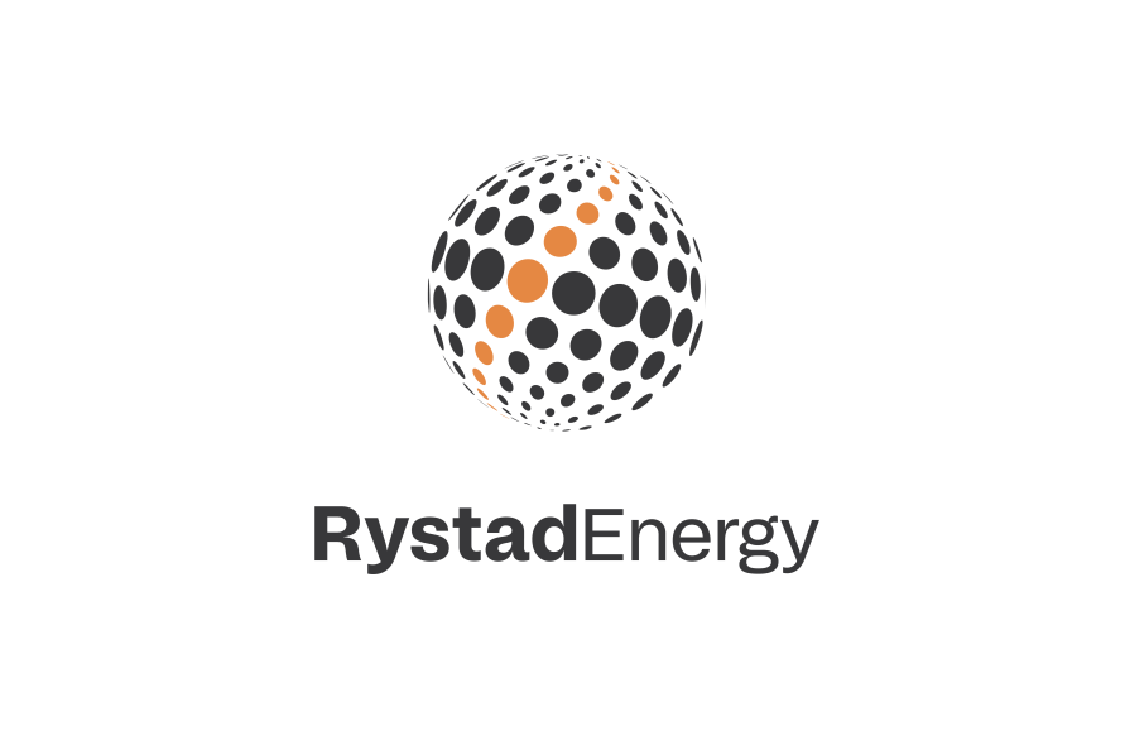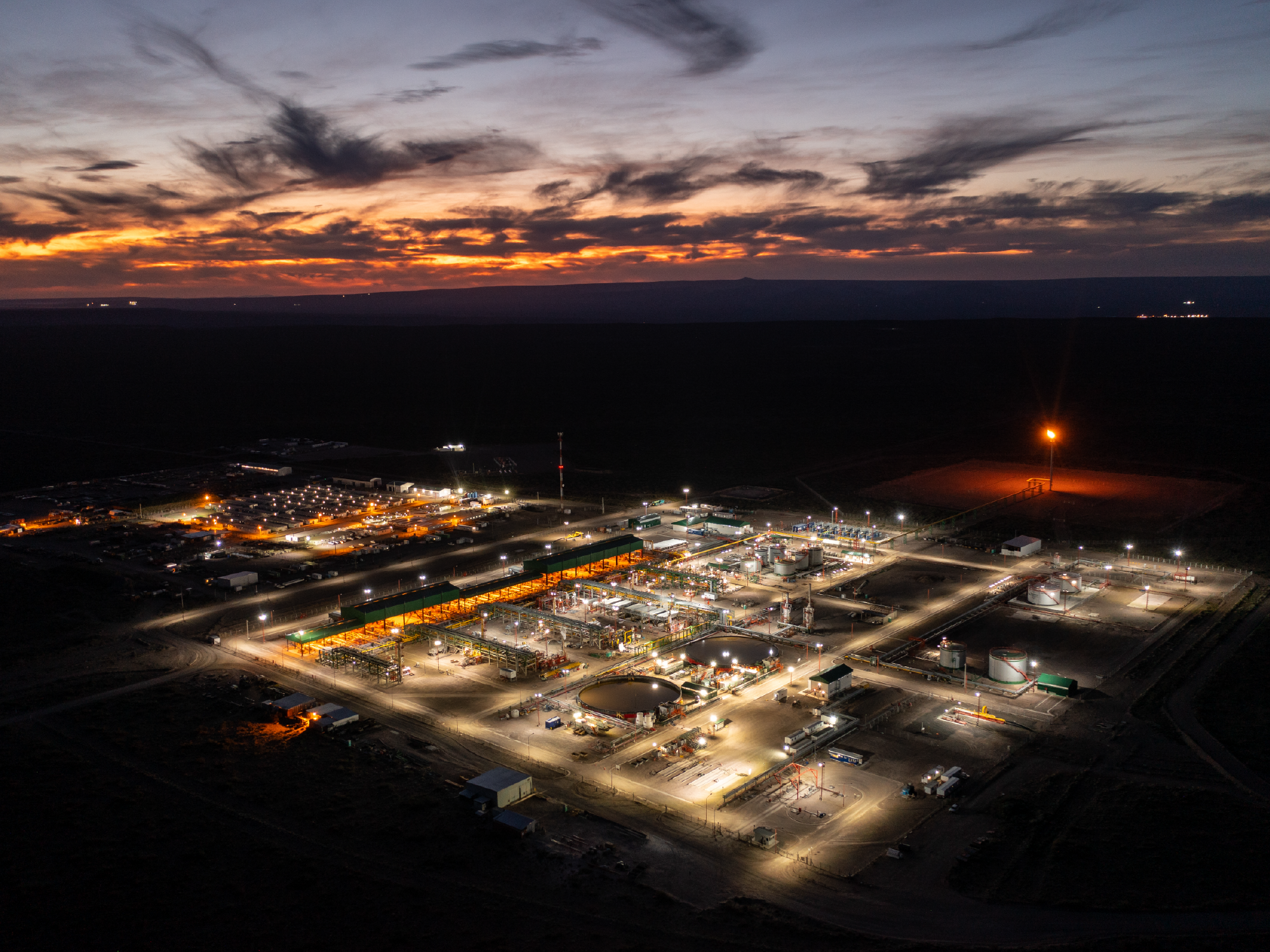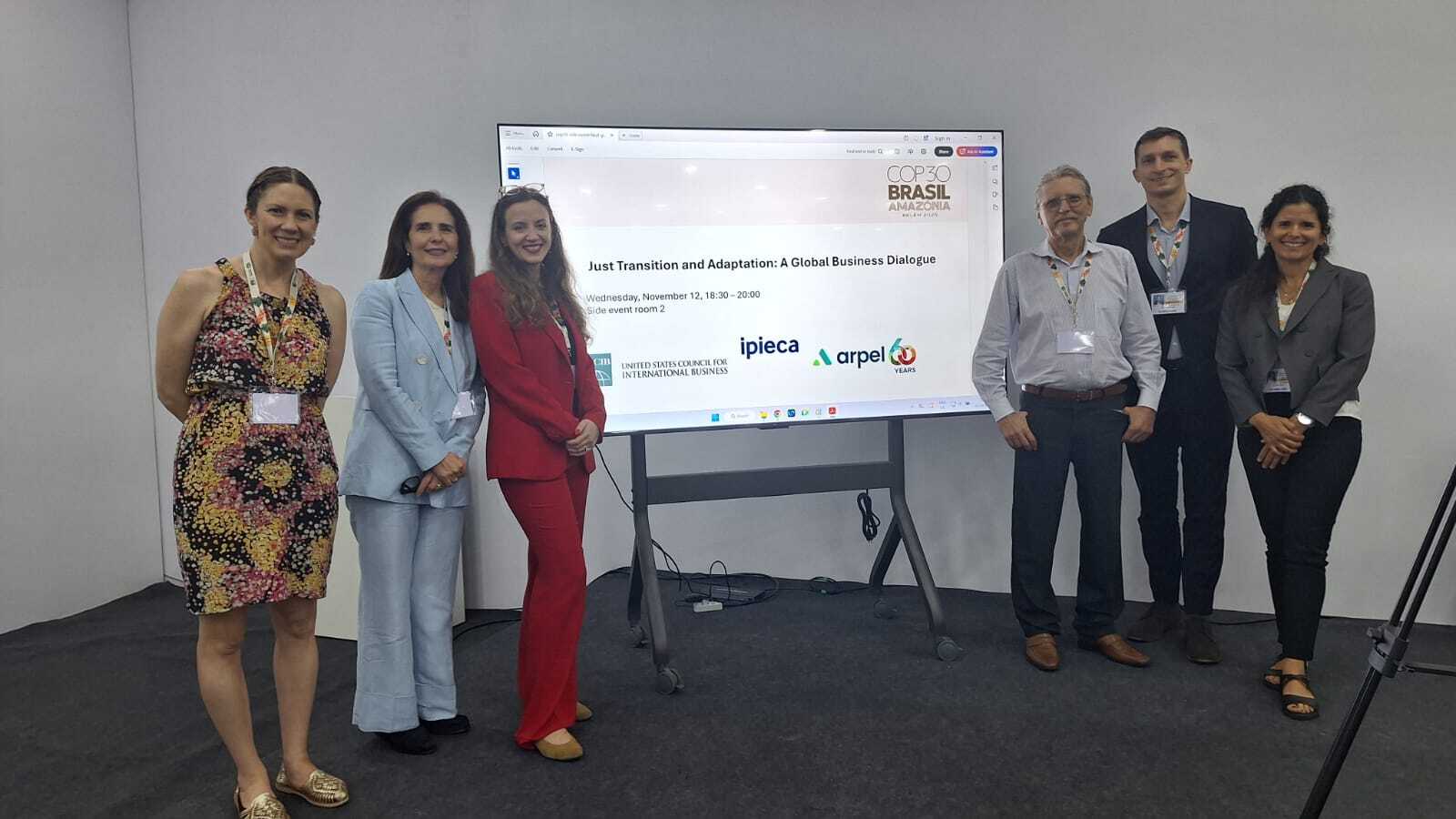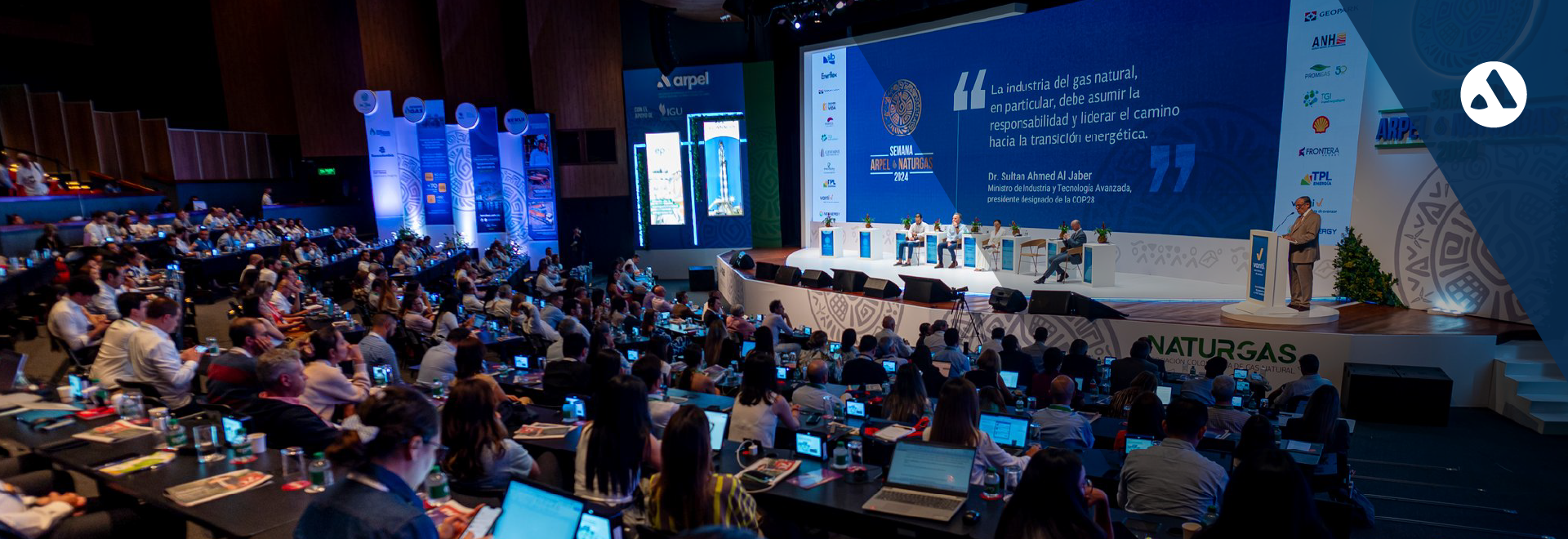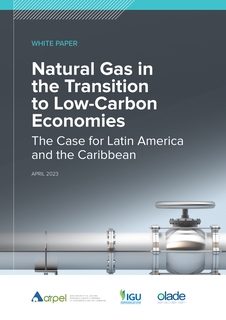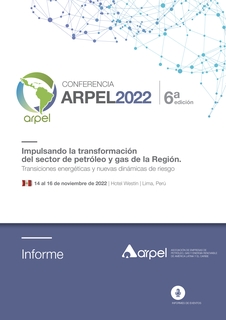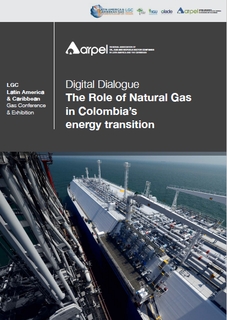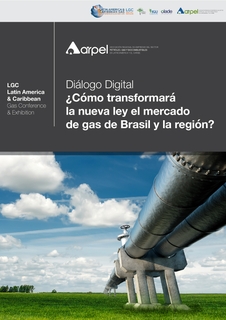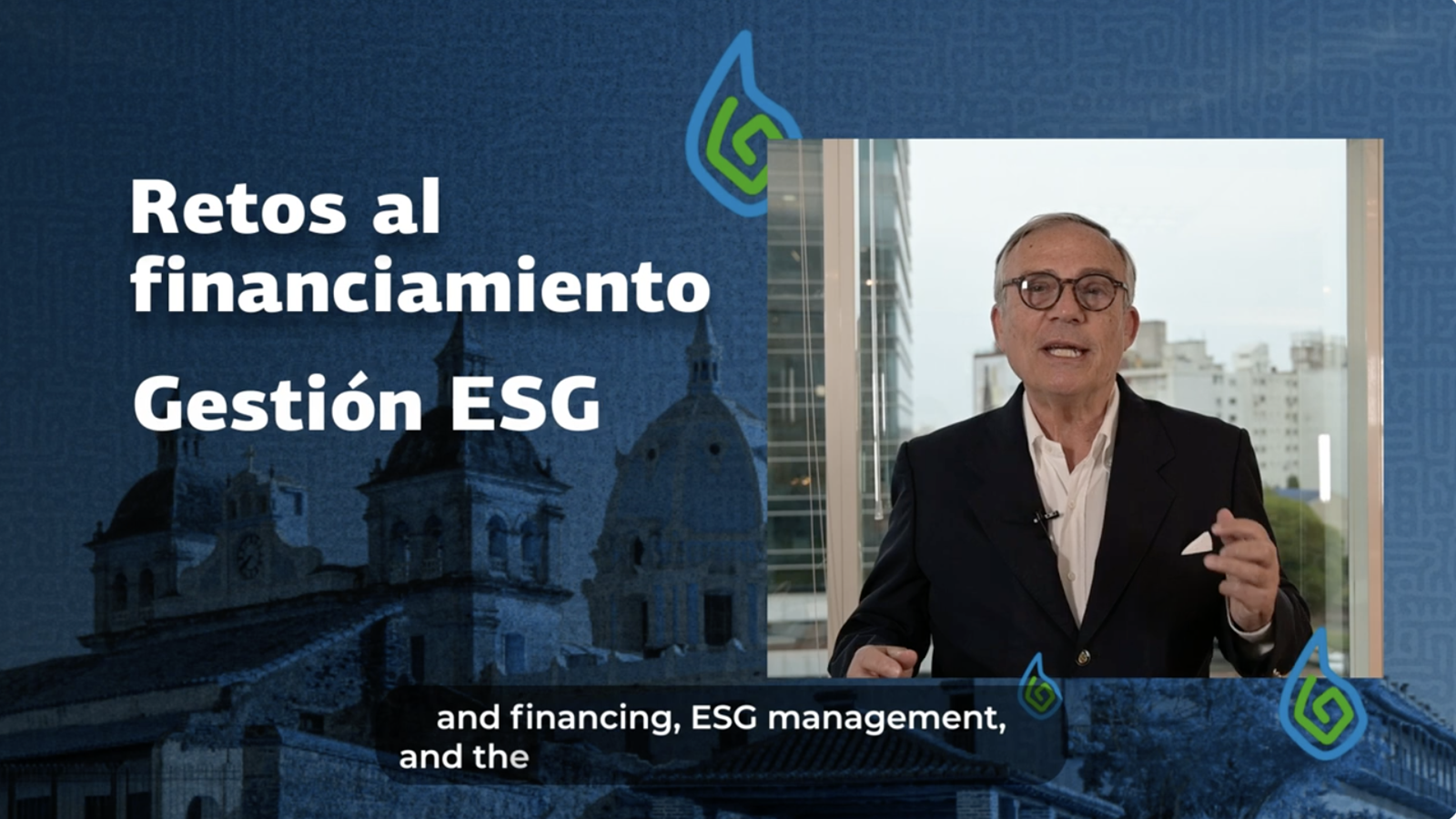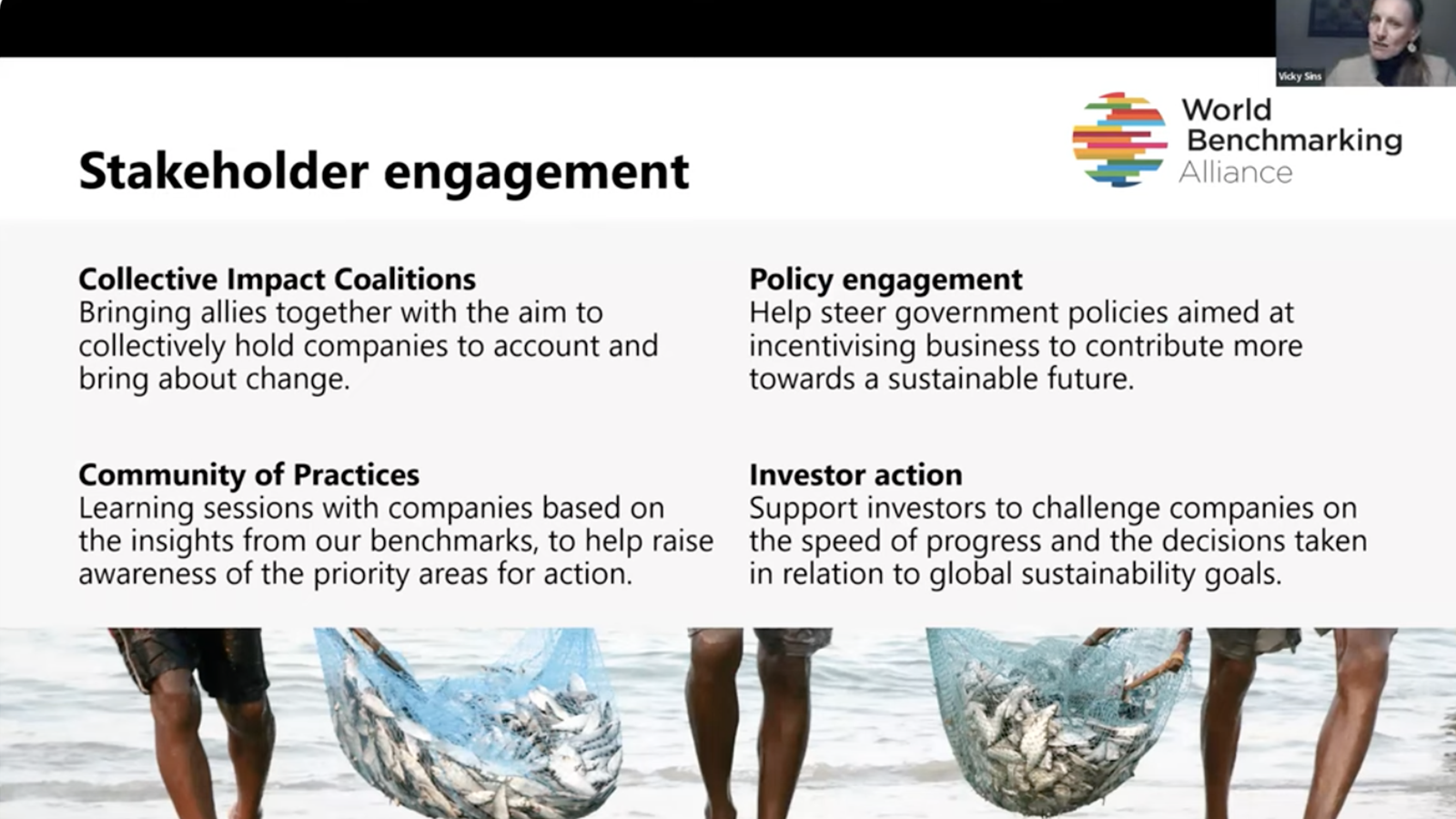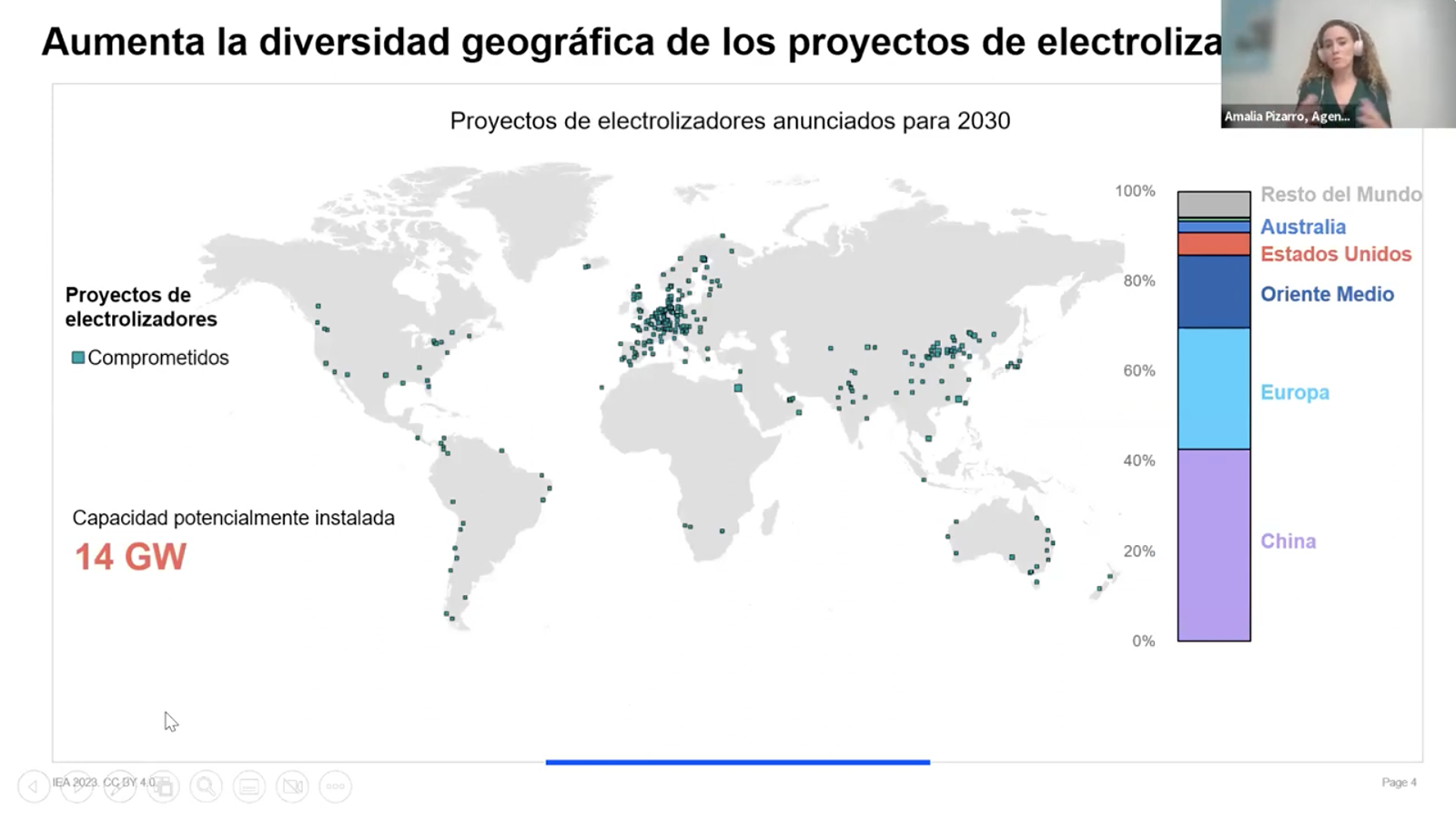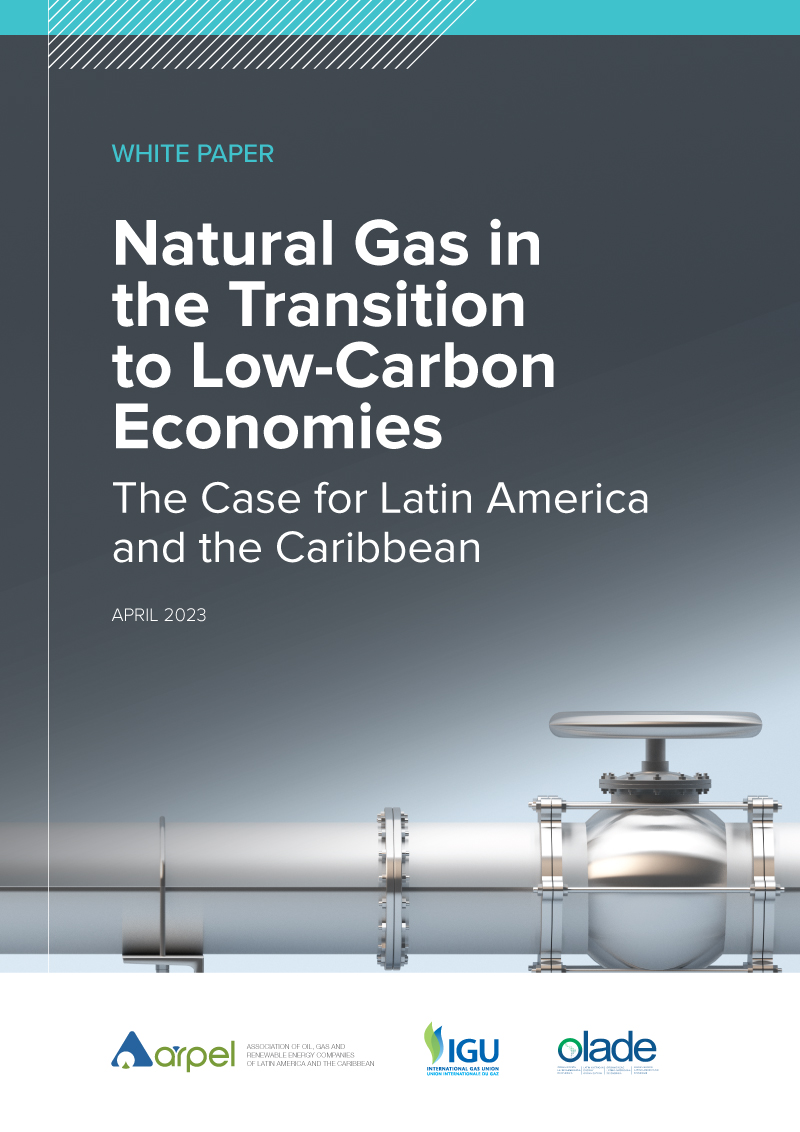
Arpel, the International Gas Union (IGU) and the Latin American Energy Organization (OLADE) announce the publication of a critical document at a vital time: “Natural Gas in the Transition to Low-Carbon Economies – The Case for Latin America and the Caribbean.” https://arpel.org/library/publication/542/
WHITE PAPER LAUNCH WEBINAR: https://www.youtube.com/watch?v=HEw1-8WYkSc&t=469s
This new exercise provides a strategic approach to the role and critical drivers for the development of natural gas today in the energy transition in the specific context of Latin America and the Caribbean. The report includes an analysis of natural gas scenarios; an overview of the socio-economic, energy and GHG (greenhouse gases) emissions situation in the region; the key drivers of natural gas and low-carbon gases development and presents perspectives on each country in the Region.
Transforming the energy sector at the needed scale and pace is a herculean task, to which all players in the energy landscape must contribute, while recognizing that the transition will require different pathways and options for different conditions - a series of “transitions” rather than a unique linear sequence of events.
This joint initiative by Arpel, OLADE and the IGU tries to illustrate the complexity of the transition, reinforcing the necessity of dialogue among institutions to reduce global warming and to promote sustainable socio-economic development for a growing global population. The fulfilment of the 17 United Nations Sustainable Development Goals (SDGs) implies a holistic approach. This is not only restricted to energy, as natural gas and low-carbon gases are also feedstock for chemicals, fertilizers, and synthetic fuels.
The future of natural gas - Some key trends for a deeply uncertain future
According to the report, the future of energy is highly uncertain. While the driving force of climate change and the consequent need to transition to a low-carbon energy system are self-evident, the nature of the energy mix in the decades to come is much more indeterminate, mainly because it is not possible to accurately predict how and when alternative technologies will mature, reach the commercial stage, and achieve wide-ranging deployment.
Energy demand will most likely increase, driven by population growth compounded by economic development; there will be advantages for the development of low-carbon gases such as biogas, biomethane, hydrogen, and natural gas with CCUS. The natural gas industry should strive to decarbonise natural gas, developing new alternatives and reducing the carbon footprint of current operations, including maintaining and strengthening a laser focus on the elimination of methane emissions. LNG trade and infrastructure are expected to grow further, adding flexibility and security to the energy supply while opening opportunities for developing other applications, such as bunkering. These are some of the key messages extracted from the analysis.
Latin American and Caribbean countries could take advantage of the current window of opportunity to foster the creation of a regional market by promoting the appropriate conditions for investment in E&P and gas infrastructures to support market needs, both for local and overseas demand. The promotion of best ESG practices for additional E&P investments could also be a strong lever to support public finance equilibrium.
The report highlights that the entire region contributes approximately 8% of the world’s total GHG emissions annually, with less than half of these emissions from energy use. Latin America and the Caribbean must thus build their own climate agendas for the energy sector, balancing economic development and decarbonisation on a global scale.
Monetisation of natural gas resources can lead to greater prosperity
Poverty and inequality are by far two of the most critical socio-economic challenges in the region. 30% of its more than 650 million inhabitants live in poverty, 13% in extreme poverty, and social inequality is vast, with a GDP/per capita below world average.
However, the region is rich in natural gas resources, and the gas sector is well-established in many countries, making significant contributions to GDP, attracting foreign investment, creating jobs, and improving lives all around. The report highlights several domestic resource monetisation opportunities to continue building on this success.
Countries such as Trinidad & Tobago, Peru, and Bolivia, have benefited from massive economic growth in the last two decades thanks to natural gas resource development; Argentina’s Vaca Muerta gas play has attracted 20 billion in investments and has the potential to make Argentina the next LNG exporting country in the region; Brazil shows opportunities in the pre-salt region; Colombia demonstrates the benefits of gasification and has excellent promise for developing its recent offshore discoveries, while Guyana and Suriname are the two rising stars because of massive offshore discoveries, opening the chance to dramatically boost their economies.
New poles of regional gas integration are emerging naturally
The dynamics of natural gas supply and consumption have been changing in the region, opening new opportunities for mutually beneficial solutions through natural gas regional integration.
In the Southern Cone, the development of Vaca Muerta, the opening of the natural gas market in Brazil prompting surges in demand, and production dynamics in Bolivia, are changing the integration map of the sub-region; this combines with new possibilities to supply gas from Argentina to Brazil, directly via new pipelines, through LNG, or via an integrated solution including Bolivia as an infrastructure hub. The great advantage of the Southern Cone is that most of the pipeline infrastructure has already been built.
Trinidad and Tobago, the largest exporter of LNG in Latin America and the Caribbean, and one of the largest ammonia and methanol exporters in the world, could benefit from massive Venezuelan offshore gas resources. Other countries in the North of South America, Guyana, Colombia, and Suriname, made massive offshore discoveries in the last few years, too; creating a new emerging pole for natural gas integration. Mexico is highly integrated with the United States of America, and there are some projects underway to process American natural gas in Mexican facilities, to export LNG to the Pacific Basin.
LNG will play a key role in regional gas integration and energy security, due to its flexibility advantage and the ability to reach islands, such as the Caribbean.
The Executive Secretary of Arpel, Carlos Garibaldi, said:
“The oil and gas industry of Latin America and the Caribbean shares the communal sense of urgency for curbing the projected effects of global climate change, by transitioning our regional primary matrix to being even further weighted by renewable and low-emission energy sources. Arpel has undertaken as a mission to drive the necessary transformation of the sector in this region and has incorporated renewable energy into its scope. Being an eclectic region, we also understand that transitions need to be just and bespoke to national and even local energy structure, development, and poverty situations.
As it names implies, transition doesn’t mean abrupt replacement. It entails having the necessary realism and pragmatism to seek synergies and “quick wins” towards the decarbonization goals. Natural gas is thus an ideal transition fuel to fill the gap between energy demand and renewable and low emissions supply.”
The Vice President of the IGU, Andrea Stegher, said:
“A pragmatic and just transition requires the best use of all available resources. Natural gas can definitely play a greater role in the Latin America and Caribbean region to promote socio-economic development while contributing to improving climate targets. The International Gas Union is proud of this high quality cooperation with OLADE and Arpel and is strongly committed to fostering an open and constructive dialogue with policy makers and stakeholders to enhance the role of gas in the transition to low-carbon economies.”
The Executive Secretary of OLADE, Andrés Rebolledo, said:
“The governments of the member states of OLADE are committed to the provision of opportunities for our people, the improvement of the quality of life in our cities and the mitigation of climate change. The energy transitions under way create the space for the advancement of these goals. Natural gas and other low-carbon gases will play, in several countries of our region, a fundamental role to ensure the justness of these transitions.”
